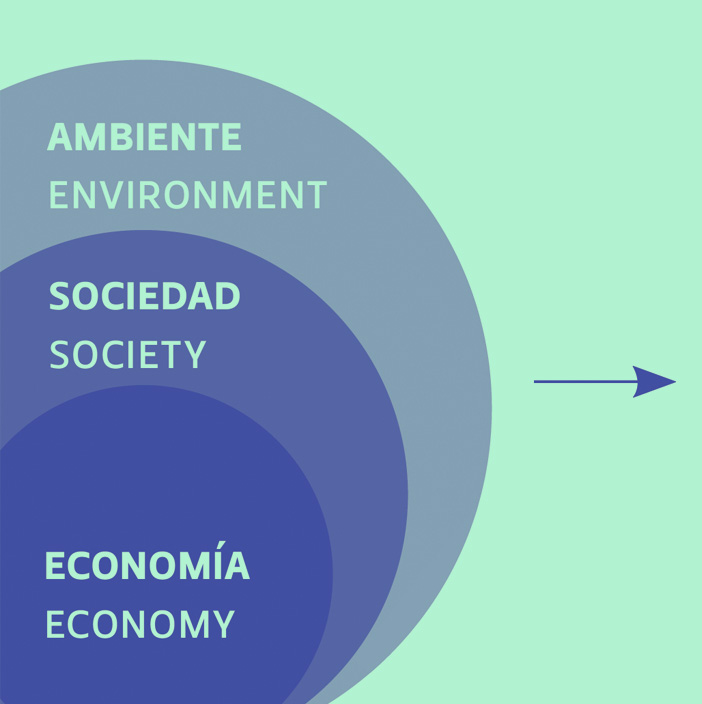Sustainable design: from the ethics of consumption to the ethics of production
Main Article Content
Abstract
The controversial concept of ethical consumption has been profusely associated with design practice in recent decades. However, on many occasions, its implementation is assumed as beneficial in the definition of all kinds of design projects without considering the nuances and/or considerations regarding its social, cultural, and productive implications. This paper seeks to help remedy the uncritical adoption of ethical consumption in design practice. To achieve this objective, we performed a multidisciplinary bibliographic discussion that exposes valuable background information to generate an argued position regarding ethical consumption and its link with the logic of sustainable design. The results derived from the analysis of the existing literature suggest an early positioning of the designer's participation in the design process. Finally, some possible ways of disciplinary confrontation of the environmental crisis that could generate higher levels of innovation are proposed.
Article Details
References
Casullo, N. (1999). Itinerarios de la modernidad: corrientes del pensamiento y tradiciones intelectuales desde la ilustración hasta la posmodernidad. Eudeba.
Cohen, M. (1997). Risk society and ecological modernisation alternative visions for post-industrial nations. Futures, 29(2), 105-119. https://doi.org/10.1016/S0016-3287(96)00071-7
Cortina, A. (2002). Por una ética del consumo. La ciudadanía del consumidor en un mundo global. Taurus.
Crocker, D. A. & Linden, T. (1998). Ethics of Consumption. The Good Life, Ethics and Global Stewardship. Rowman & Littlefield Publishers.
Díaz, E. M. (2018). El consumo ético entre los jóvenes universitarios españoles. Revista de estudios de juventud 119, 119-144 https://www.injuve.es/observatorio/economia-consumo-y-estilos-de-vida/revista-de-estudios-de-juventud-119-jovenes-nuevos-habitos-de-consumo
Duncan, A. (1995). El Art Nouveau. Destino.
Dunne, A & Raby, F. (2013). Speculative Everything. Massachusetts Institute of Technology.
Escobar, A. (2018). Designs for Pluriverse: Radical Interdependence, Autonomy, and the Making of Worlds. Duke University Press.
Everett, J. (2001). The Ethics of Consumption: Individual Responsibilities in a Consumer Society. [Doctoral Dissertation, University of Colorado at Boulder] University of Colorado at Boulder ProQuest Dissertations Publishing. Available in https://www.proquest.com/openview/b661817b06888acfcd0de9ca7f34844f/1?pq-origsite=gscholar&cbl=18750&diss=y
Fallan, K. (2014). Our Common Future. Joining Forces for Histories of Sustainable Design. Tecnoscienza – Italian Journal of Science & Technology Studies, 5(2), 15–32. https://doi.org/10.6092/issn.2038-3460/17191
Fisher, M. (2019). Realismo Capitalista: ¿No hay alternativa? Titivillus.
Flusser, V. (2002). Filosofía del diseño: la forma de las cosas. Síntesis.
Heidegger, M. (2021). La pregunta por la técnica. Helder.
Heskett, J. (2005). Design: a very short introduction. Oxford University Press.
Margolin, V. (2002). The Politics of the Artificial: Essays on Design and Design Studies. University of Chicago Press.
Margolin, V. (2015). World History of design. Bloomsbury
Michaelis, L. (2000). Ethics of Consumption. Oxford Centre for the Environment, Ethics & Society.
Mitrovic, I. & Suran, O. (Eds.) (2016). Speculative – Post-Design Practice or New Utopia? Ministry of Culture of the Republic of Croatia & Croatian Designers Association.
Mitrovic, I., Auger, J., Hanna, J., & Helgason, I. (Eds.) (2021). Beyond Speculative Design: Past - Present - Future. University of Split.
Mumford, L. (2006). Técnica y civilización. Alianza.
Ortega, F. (2011). La política mediatizada. Alianza.
Pelta, R. (2007), No hay nada fuera del texto. Jacques Derrida: diseño gráfico y deconstrucción. En A. Calvera (Ed.), De lo bello de las cosas. Materiales para una estética del diseño, (pp. 153-172) Gustavo Gili.
Pevsner, N. (1936). Pioneers of Modern Design: From William Morris to Walter Gropius. Penguin Books
Pla, N. (2002). Consumo, identidad y política [Tesis de doctorado, Universitat de Barcelona]. Disponible en: https://diposit.ub.edu/dspace/bitstream/2445/41712/6/LPV_TESIS.pdf
Prieto-Sandoval, V., Jaca, C., Ormazábal, M. (2017) Economía circular en relación con la evolución del concepto de sostenibilidad y estrategias para su implementación. Memoria Investigaciones en Ingeniería 15. 85-95. https://revistas.um.edu.uy/index.php/ingenieria/article/view/302/360
Ribeiro, C. E. & de Oliveira Rangel, F. (2017). O enunciado ético de sustentabilidade: pistas discursivas para uma crítica do consumo ético. Prometeica - Revista de Filosofía y Ciencias, (14), 34–44. https://doi.org/10.24316/prometeica.v0i14.171
Sparke, P. (2011). Diseño y cultura. Una introducción: desde 1900 hasta la actualidad. Gustavo Gili.
Zizek, S. (2011). Primero como tragedia, después como farsa. Akal.
Zizek, S. (2018). El coraje de la desesperanza: Crónicas del año en que actuamos peligrosamente. Anagrama.


